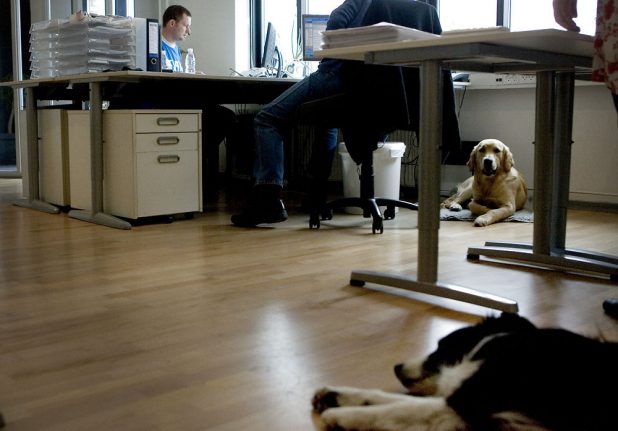More than 200,000 foreigners are now at work in Denmark, according to the Confederation of Danish Industry. But the fine points of Danish business etiquette can be tricky for foreigners. Many of the “rules” are unwritten, and Danes have expectations of their business partners they might not always be aware of themselves.
In my book “How to Work in Denmark: Tips on Finding a Job, Succeeding at Work, and Understanding Your Danish Boss,” I talk about some of these unsaid expectations and unwritten rules of Danish business etiquette.
Here are a few of them.
Trust is a key factor in both Danish culture and Danish business culture. Having hired you, your Danish boss will assume she can trust you: she will give you a project and expect that you will be able to complete it on time and up to standard. If you are delayed or make a mistake, admit it as soon as possible. Danish bosses and colleagues can accept the occasional error, but they won’t accept a lie or a cover-up.
Treat your boss with the same respect that you treat the cleaning man – and vice-versa. The Danish culture of equality means that bosses don’t expect bowing and scraping – they prefer to be just part of the team, more of a coach than a general. On the flip side, it’s important to treat administrative staff and service personnel in Denmark in a dignified manner. Being abrupt or dismissive to them is considered extremely rude.
Denmark is an informal culture; formality can be seen as unfriendliness. In your LinkedIn photo or job application photo, you should be smiling and relaxed, like someone it would be enjoyable to share a coffee break with. (Too many foreigners use serious-looking passport-type photos.) Work clothing is informal, too. Whether you’re male or female, you can wear a shirt or sweater and business trousers to most offices. Business suits are rarely required; skirts and dresses never are.
In a Danish business meeting, you are expected to speak up with your opinions, regardless of your place within the corporate hierarchy. Many foreigners are afraid to contradict the boss, but in Denmark this is accepted and expected – the boss will actually be angry if you don’t say something and he ends up making a bad business decision because of it. Arrive at the meeting with a well-researched point of view and express it politely; this will earn you the respect of everyone on your team.
READ ALSO: OPINION: Why do Danish leaders seem rude?
Danish humour can be difficult for foreigners to understand. It’s based on the “law of Jante”, an informal concept that nobody can think themselves better than anyone else. At its best, Danish humour involves gentle self-mocking, like the “failure cake” or “failure beer” people buy for friends after making an embarrassing mistake. At its worst, it can be sarcastic and unkind. If you’re not sure about whether something a Danish colleague said was supposed to be joke, ask.
Making friends in Denmark is tricky, because most Danes see friendship as a long-term enterprise and often have their schedules full with extended family and people they have known since childhood. Don’t expect your colleagues to hang around with you outside of working hours or go for a beer after work, particularly if they have children. Instead, find friends through your outside interests – athletic clubs, knitting clubs, volunteer groups, and political parties are all good starting points.
On the other hand, if your colleagues are gathering during the workday for a celebratory piece of cake, it’s important to join in – even if all you consume is a cup of tea. Taking time for a cake break is a good way to show you’re friendly and want to be part of the team; cake is an important part of Danish business etiquette.
 Kay Xander Mellish is a keynote speaker about Danish culture and Danish business culture. You can book Kay for a presentation on doing business in Denmark here. Kay blogs at HowtoLiveinDenmark.com and her How to Live in Denmark podcast is free on iTunes and Spotify.
Kay Xander Mellish is a keynote speaker about Danish culture and Danish business culture. You can book Kay for a presentation on doing business in Denmark here. Kay blogs at HowtoLiveinDenmark.com and her How to Live in Denmark podcast is free on iTunes and Spotify.



 Please whitelist us to continue reading.
Please whitelist us to continue reading.
Member comments